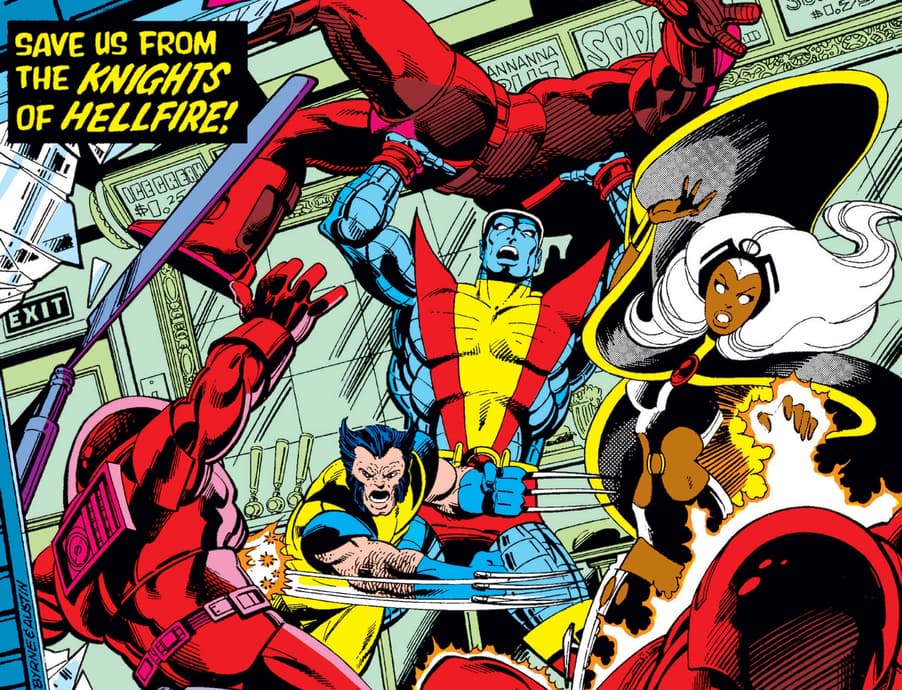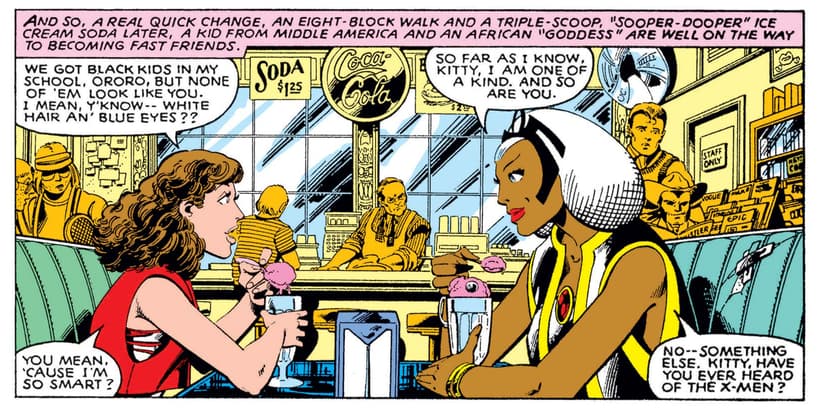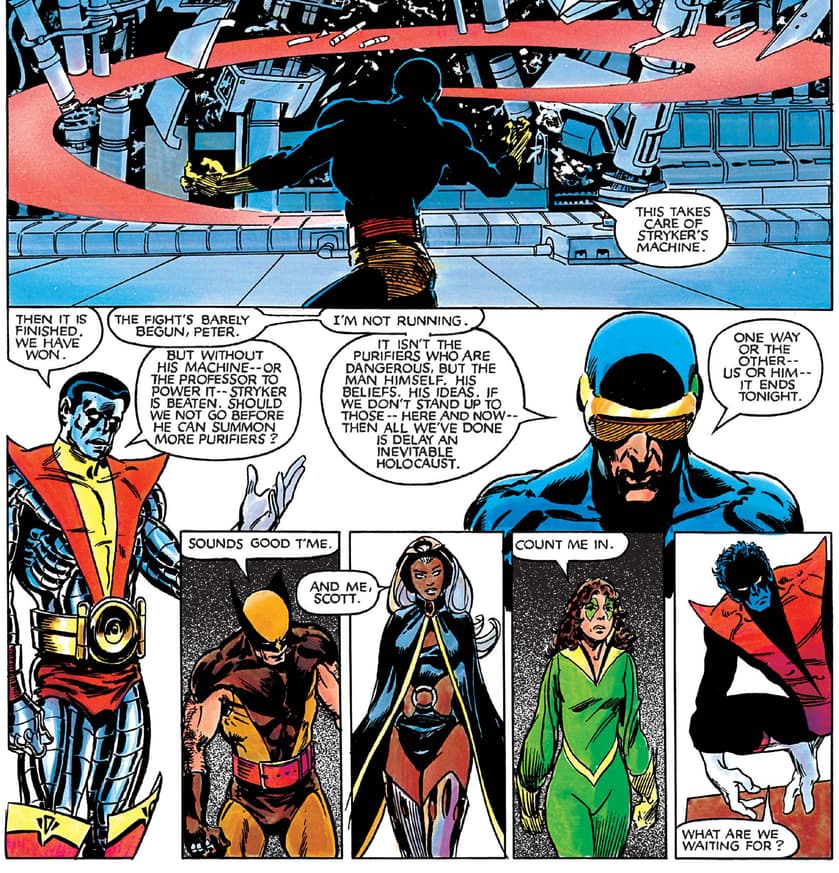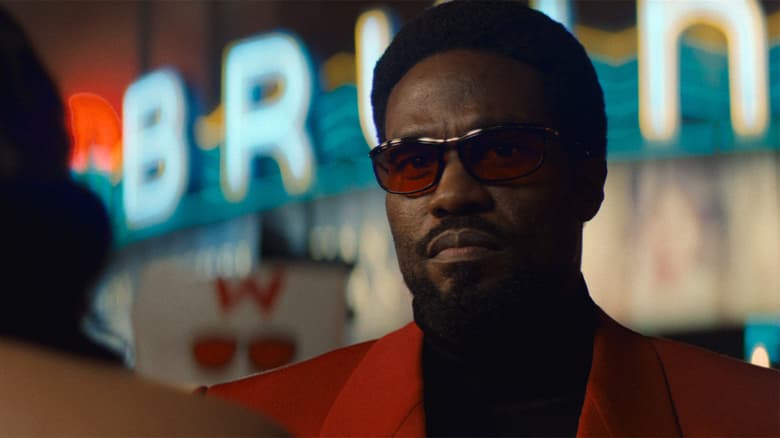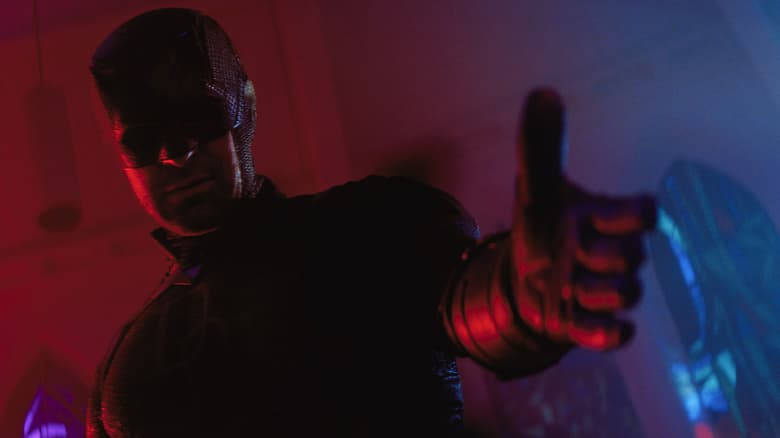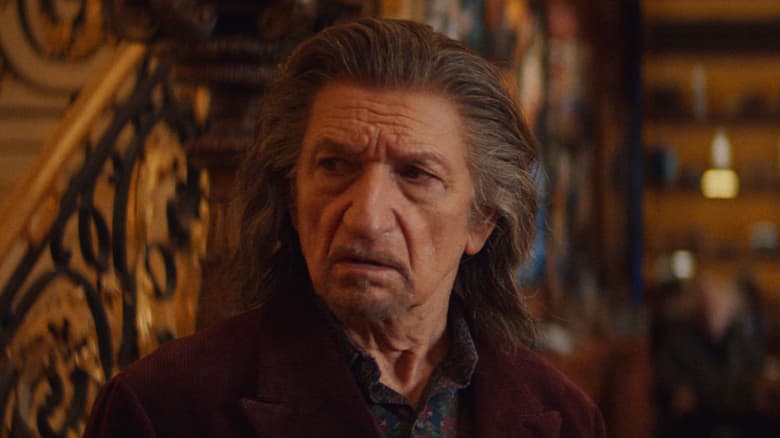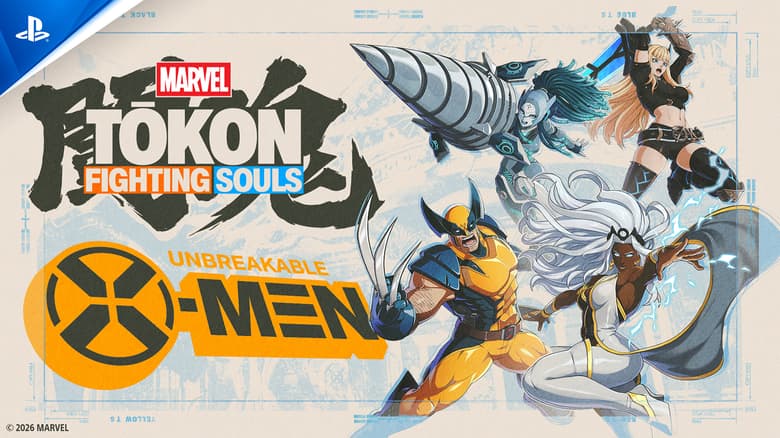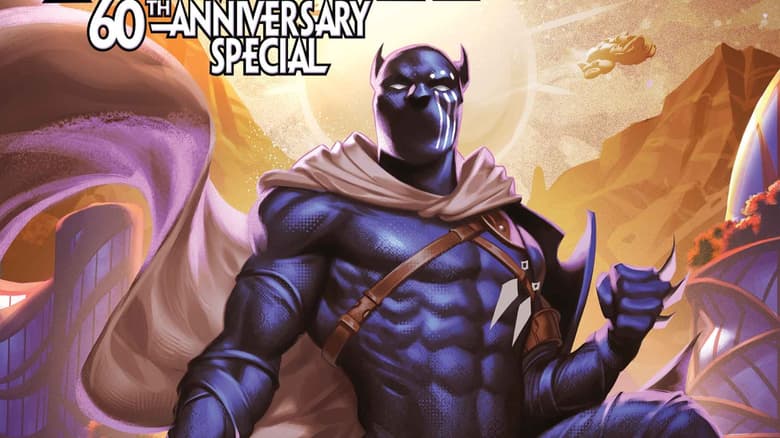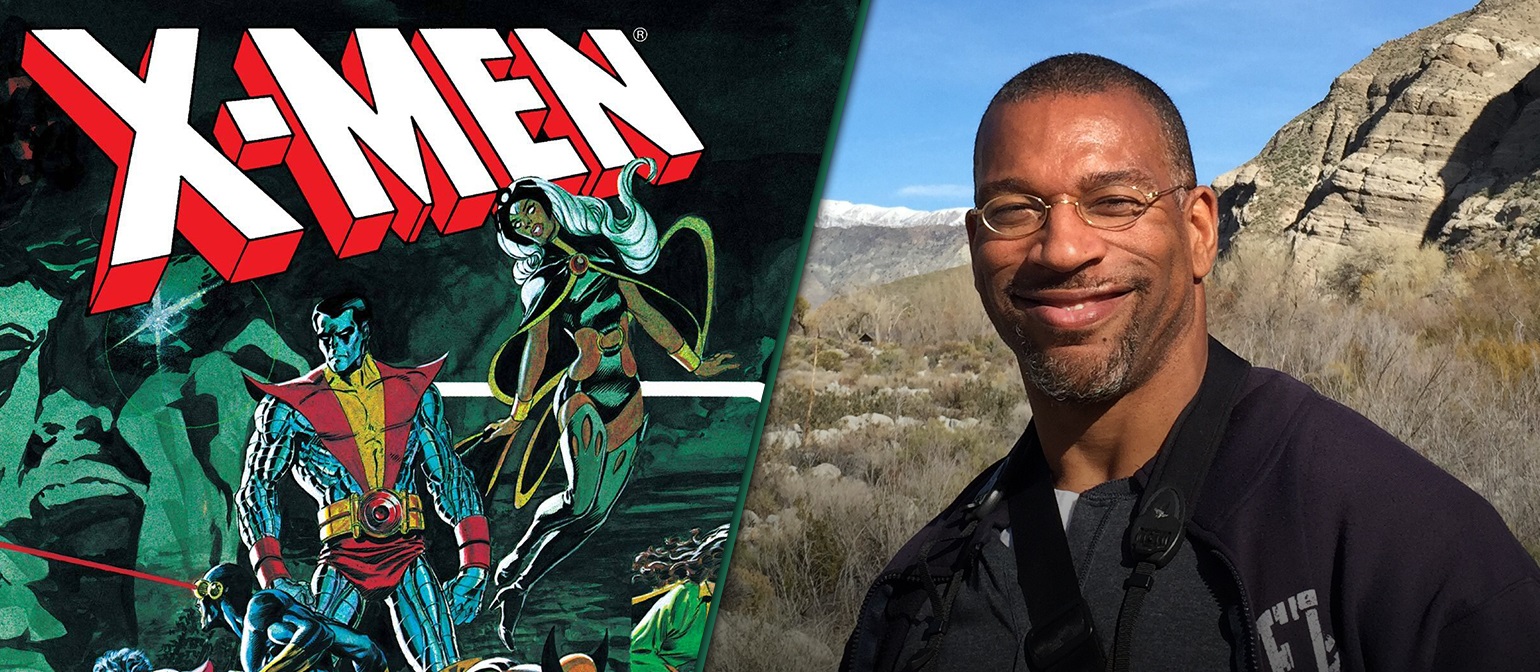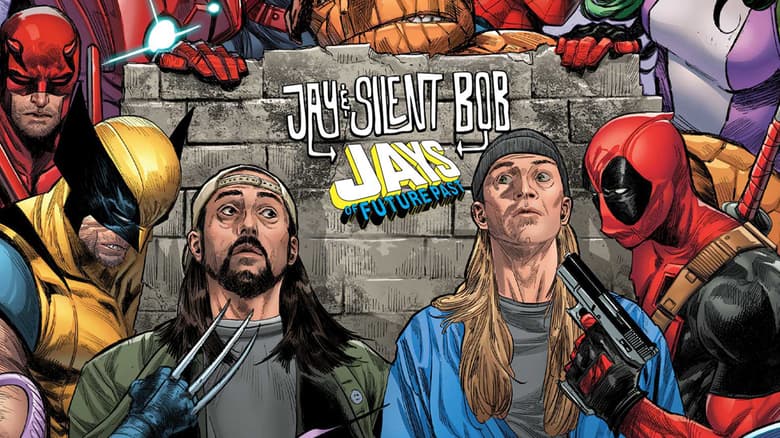'Marvel's Voices': Chris Cooper Tells How the X-Men Opened Up Spaces For LGBTQ Readers
A Marvel editor returns to share his take on how the Uncanny X-Men battled together against bigotry, while fighting countless Super Villains!
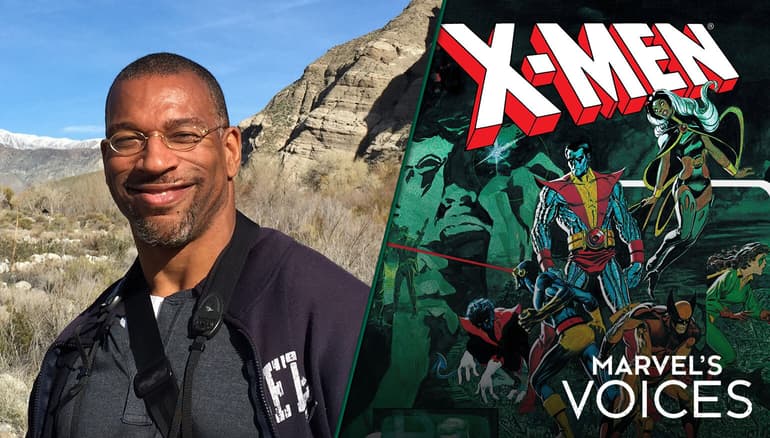
“Storm, Wolverine, Colossus, Nightcrawler, Cyclops…children of the atom, students of Charles Xavier, MUTANTS—feared and hated by the world they have sworn to protect. These are the strangest heroes of all…the Uncanny X-MEN!”
Or, perhaps the top copy on those late ’70s/early ’80s issues of UNCANNY X-MEN should have read: “These are the queerest heroes of all.” Born in the same year as me, 1963, from the fevered creativity of Stan Lee and Jack Kirby, the X-Men were different from other heroes in that they weren’t exposed to radiation or wielders of amazing technology as the source of their powers; the X-Men were born that way. Just like me.
When I first stumbled into the first issues of UNCANNY X-MEN as a young child in the dentist’s office waiting room, I already knew other guys turned me on in ways no woman did. But I didn’t yet understand the ramifications of that—how that innocent aspect of my being would place me as much at odds with the society around me as any mutant would be. I just thought Cyclops and Angel were cool! (Beast and, interestingly enough, the eventually gay Iceman, not so much; and tellingly, Marvel Girl barely registered.)
And it’s highly unlikely Stan Lee had a parable for the LGBTQ community in mind when he dreamt up the mutants; Stonewall hadn’t even happened yet, and the big fight for social justice of the day was the Civil Rights movement for Black Americans. If anything, that must have been the inspiration for the prejudice mutants faced, the social dilemma Lee sought to obliquely dramatize.
As a Black kid, I certainly understood the bigotry the X-Men fought just as hard as they battled super villains. But it was as a queer teen that I found the X-Men resonated to my core, when I next stumbled back into their world, after wandering away from comics for many years. “Save us from the Knights of Hellfire!” the cover of UNCANNY X-MEN #129 shouted from the racks of the local 7-Eleven…but who the devil were these people? They weren’t any X-Men I knew!
I soon found out, and was swept back into a world where people who might look just like everyone else could discover something very different about themselves at adolescence, and be despised for it. Intended or not, that perfectly distilled the queer experience. These were heroes I could relate to, whose fears echoed my own (never more so than in the AIDS era, when the Legacy virus threatened mutantkind).
And the final queer twist? Of course the X-Man this gay guy most fervently identifies with is an X-Woman. Marvel Girl may have escaped my notice, but Storm became my goddess, idolized in the grand tradition of Judy, Barbra, Cher, Madonna, Gaga, and Beyoncé…only this icon can summon lightning and pick a lock with her teeth!
The adventures of the X-Men were a lifeline for this closeted queer kid. In those quietly dark moments, when I felt utterly isolated while I smiled through a fake face to my friends…when the whole world smothered me with the knowledge that I was just one longing glance away from being an outcast…there was another world I could escape to. A world of outrageous exploits, to replace my grim reality; a world where the villains were clear and would ultimately be vanquished with a “bamf!” and a “snikt!” and a “krakow!” of lightning. But more importantly, a world where the outcasts had amazing talents, and each other to lean on; a world where the reviled fought shoulder to shoulder to make things better.
I didn’t know it then, but that latter world would become my reality. I would be surrounded by other queers, amazing and talented people, who would support each other as family. To this day, they fight alongside me for our rightful place in society and for the rights of others, too. Reading those X-Men stories let me dare to dream of such a reality; it modeled for me in fiction the man I could become in fact. That was the true power of the X-Men: not superhuman abilities, but the power of a great story to shape a young mind.
[RELATED: SOLVING FOR X: 'God Loves, Man Kills' Through the Lens of Now — John Jennings revisits this influential X-Men story three decades later]
Now, with the mainstreaming of LGBTQ life opening up space in the pages of Super Hero comics for more than just a thinly veiled parable, the X-Men include both openly gay and non-gay members. Long may all these children of the atom, the queerest heroes of all, battle bigotry in whatever guise it takes, their example bringing hope to generations of queer folks the world over.
Comics are a chance to inspire. It may be fiction, but it comes from somewhere, some deep human part of us. We get to tell that in a way that cuts through moralizing and shows by example, in a way that lodges it deep in the heart and mind. Hopefully, it sticks with us, so that when we're faced with a difficult situation, we can reach in there and find what we need to inspire us to act a certain way, to do the right thing, to—to be our best selves.
To read more essays from Marvel's Voices on Marvel.com, head over here!
The Daily Bugle
Can’t-miss news and updates from across the Marvel Universe!
